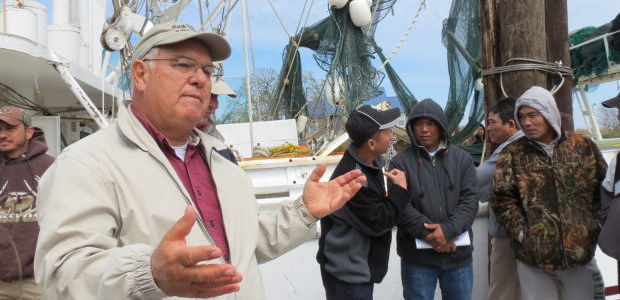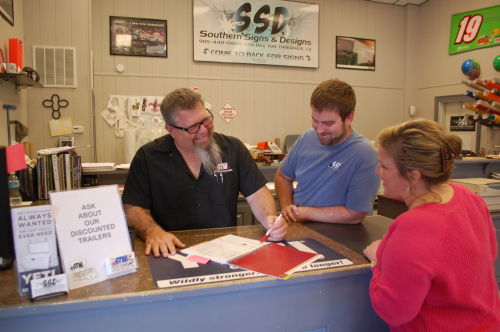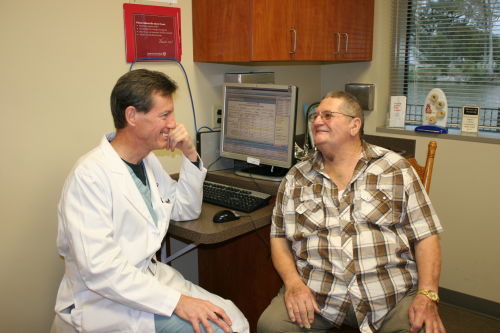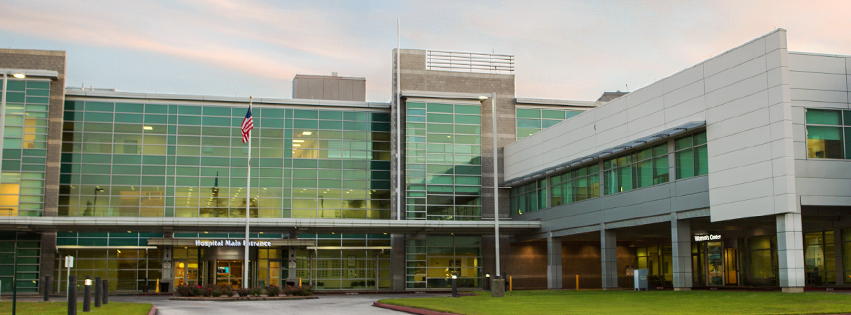
New tricks for an old trade
March 5, 2013
Southern Trailer Works pleases with effort, kindness
March 5, 2013A Morgan City man has reported progress in combating the symptoms of heart failure after he became the first person in the nation to receive a Barostim neo implant, the Cardiovascular Institute of the South announced last month.
Joseph Stelly, 70, has a history of chronic heart problems including heart failure, hypertension and a weakened heart muscle. Doctors implanted coronary stents and a pacemaker defibrillator, but the problems persisted.
So Dr. Richard Abben, a cardiologist at the Cardiovascular Institute of the South, and Dr. Edgar Feinberg, a Houma cardiovascular surgeon, tabbed Stelly to receive treatment unique to anyone else in the United States.
“Mr. Stelly’s severe heart failure problem persisted despite appropriate medical therapy and thus he seemed to be a good candidate for the Barostim neo implantation,” said Abben – who along with Feinberg is a primary investigator for the treatment’s research trial – in a press release.
The procedure to install the pacemaker-like device lasted just longer than an hour. It was performed Feb. 3 at Terrebonne General Medical Center.
Stelly reported that his fatigue, shortness of breath and exercise capability have significantly improved.
“Dr. Abben has been my doctor for a long time, and he saved my life,” Stelly said in the press release.
Barostim neo stimulates natural sensors under the skin in the neck to send signals to the brain and regulate blood flow. The doctors theorize that the device may improve blood pressure control, increase efficiency in cardiac function and improve blood flow to the organs.
The primary symptoms of heart failure – a condition in which the heart cannot pump enough blood to satisfy the body’s needs – are general fatigue or weakness, shortness of breath or swelling of the legs or ankles. It can originate from – but is not limited to – a heart attack.
The condition can worsen over time, and there is a threat that patients will die within five years of being diagnosed.
“I could hardly walk; I was so short-winded,” Stelly said in the release. “I couldn’t breathe.”
Only patients who experience “sever symptomatic heart failure while on optimal medical therapy” and do not qualify or have benefitted from cardiac resynchronization therapy are eligible for the trial. Those interested in learning more about the trial or their qualifications for it are urged to call the CIS research department at (985) 873-5613.
“As this is a device trial, the potential long-term benefits will not be understood until more patients are evaluated and the study completed,” Abben said. “But we are certainly hopeful that his gratifying improvement to this unique therapy will continue to progress, and that this technology can be successfully applied to a broader group of patients with the disabling condition of heart failure.”
Dr. Richard Abben, a cardiologist with the Cardiovascular Institute of the South, and Morgan City resident Joseph Stelly, discuss his recent prodedure. Abben and Dr. Edgar Feinberg, a Houma cardiovascular surgeon, were the first in the U.S. to implant the Barostim neo device for the treatment of persistent heart failure.








